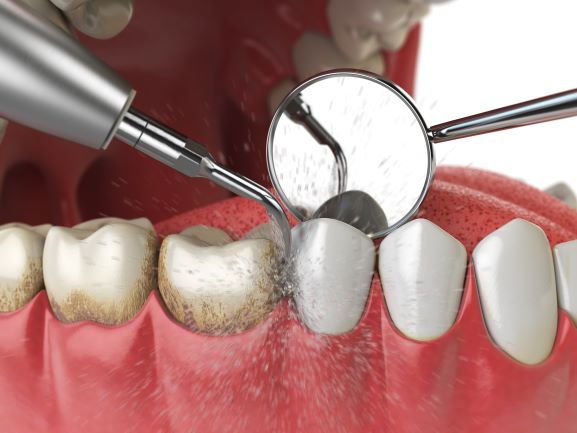Are plaque removal tools safe to use at home?
By Maya Samuel
You may have recently seen specialised plaque removal tools on sale for the general public to purchase on social media. These tools are known as scalers and are used by dental hygienists to remove plaque and calculus from your teeth during a hygiene visit. A hygienist will gently clean around your teeth and under your gum-line to ensure they are free from bacteria and calculus whilst giving you advice on how to maintain good oral health at home. Sometimes deeper cleaning is required where the hygienist will clean the root surfaces of your teeth.
 The tools they use can be very sharp and if used improperly, can damage your teeth and gums and although widely available, they are not recommended by dental professionals for patients to use themselves at home. As these tools are sharp and gum tissue is very delicate, it is easy to cause trauma. Trauma can result in gum recession which in turn increases your risk of developing sensitivity and tooth decay as the root surface is softer than enamel. You may also cause trauma to other soft tissues such as your cheeks and tongue. Finally, you may cause damage to your enamel which is irreversible and as a result, stains will pick up faster. If you require deeper root surface cleaning, then this will be very difficult and dangerous to carry out on yourself.
The tools they use can be very sharp and if used improperly, can damage your teeth and gums and although widely available, they are not recommended by dental professionals for patients to use themselves at home. As these tools are sharp and gum tissue is very delicate, it is easy to cause trauma. Trauma can result in gum recession which in turn increases your risk of developing sensitivity and tooth decay as the root surface is softer than enamel. You may also cause trauma to other soft tissues such as your cheeks and tongue. Finally, you may cause damage to your enamel which is irreversible and as a result, stains will pick up faster. If you require deeper root surface cleaning, then this will be very difficult and dangerous to carry out on yourself.
Hygienists are required to undergo a minimum of 2 years’ worth of training at university to learn how to use these tools effectively and most importantly, safely. Removing plaque is extremely important in preventing gum disease and tooth decay, however there are other ways of doing this. Remembering to brush twice a day using the correct technique for a minimum of 2 minutes at a time. Ensuring you are using a soft toothbrush head, a fluoridated toothpaste and using some form of interdental aid e.g. floss or interdental brushes at least once a day to ensure optimal oral health.
If you are concerned about the presence of plaque in your mouth, please visit your dentist or hygienist to have a full mouth assessment and if necessary, treatment carried out by a qualified dental hygienist.










